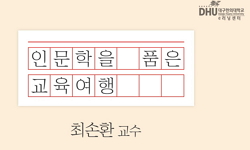본 연구에서는 ‘생애 경험과 민주화는 장관의 행태에 어떤 영향을 미치는가’라는 연구질문을 토대로 민주화 시대가 개막된 노태우 정부와 문민 민주주의를 표방한 김영삼 정부에서 임명...
http://chineseinput.net/에서 pinyin(병음)방식으로 중국어를 변환할 수 있습니다.
변환된 중국어를 복사하여 사용하시면 됩니다.
- 中文 을 입력하시려면 zhongwen을 입력하시고 space를누르시면됩니다.
- 北京 을 입력하시려면 beijing을 입력하시고 space를 누르시면 됩니다.

민주주의 전환기의 장관 리더십에 관한 생애사적 접근: 윤형섭·이명현 장관 사례 분석 = A Life History Approach to Ministerial Leadership in a Time of Democratic Transition: Analysis of the Cases of Ministers Yoon Hyung-seop and Lee Myung-hyun
한글로보기https://www.riss.kr/link?id=A108277918
- 저자
- 발행기관
- 학술지명
- 권호사항
-
발행연도
2022
-
작성언어
-
- 주제어
-
KDC
300
-
등재정보
KCI우수등재
-
자료형태
학술저널
- 발행기관 URL
-
수록면
1-34(34쪽)
- DOI식별코드
- 제공처
-
0
상세조회 -
0
다운로드
부가정보
국문 초록 (Abstract)
본 연구에서는 ‘생애 경험과 민주화는 장관의 행태에 어떤 영향을 미치는가’라는 연구질문을 토대로 민주화 시대가 개막된 노태우 정부와 문민 민주주의를 표방한 김영삼 정부에서 임명된 윤형섭 장관과 이명현 장관의 리더십을 생애사 방법으로 분석하였다. 분석 결과, 윤형섭 장관은 민주적 의사결정이 가능한 체제(질서)를 민주화의 핵심 조건으로 보았고, 핵심행정부 내부에서의 협력을 통하여 합리적으로 문제해결을 도모하는 가운데 리더십을 발휘하였다. 반면 이명현 장관은 시대정신이 반영된 국정이념(명분)을 민주화의 본질로 보되, 전문성과 저돌적인 추진력에 기반해 총체적인 정책 변화를 지향하는 리더십을 발휘하였다. 민주주의 전환기에 등장한 두 장관의 리더십을 통해 한국의 민주화란 체제 내부의 민주적 환경 조성에서 시작해, 체제 밖의 변화를 수용한 개혁이 국가정책으로 구현돼 보편적 민주주의로 발전되는 일련의 과정을 통해 진척된 현상임을 알 수 있다.
다국어 초록 (Multilingual Abstract)
Beginning with the research question “How do life experience and democratization influence ministers’ behavior?” This study used the life history method to analyze the ministerial leadership of Yun Hyoung-seop, appointed by the Rho Tae Woo admin...
Beginning with the research question “How do life experience and democratization influence ministers’ behavior?” This study used the life history method to analyze the ministerial leadership of Yun Hyoung-seop, appointed by the Rho Tae Woo administration, which opened democratization, and Lee Myoung-hyeon, selected by the Kim Young Sam administration, which declared civilian democracy. According to the analysis, Yun Hyeong-seop deemed that the key of democratization should be the system (“order”), allowing democratic decision making and exercising leadership by promoting reasonable problem solving through cooperation within the core executive. On the other hand, Lee Myeong-hyeon regarded the essence of democratization as an ideology of government (“legitimacy”) reflecting the spirit of the times, and he demonstrated political leadership that relied on his own expertise and an aggressive drive with holistic policy changes. From the leadership of these two figures in a time of democratic transition, it can be concluded that Korean democratization was a phenomenon concretized in a process that began with the formation of a democratic atmosphere inside the political system and progressed to a reformation in which changes adopted from outside the system came to be embodied as national policy.
동일학술지(권/호) 다른 논문
-
공직자의 이해충돌방지를 위한 정책결정과정 분석: 텍스트마이닝을 활용한 다중흐름모형의 적용
- 한국행정학회
- 김주상 ( Kim Jusang )
- 2022
- KCI우수등재
-
정책수단으로써 문재인정부 자치분권정책의 전략과 과제 간 정합성 분석: 인천광역시 자치분권 종합계획에 대한 공직자 인식조사를 중심으로
- 한국행정학회
- 서인석 ( Seo Inseok )
- 2022
- KCI우수등재
-
증거기반정책 연구는 증거가 있는가?: 국내 증거기반정책 연구에 대한 체계적 문헌고찰
- 한국행정학회
- 양은진 ( Yang Eunjin )
- 2022
- KCI우수등재
-
- 한국행정학회
- 조미나 ( Cho Mi Na )
- 2022
- KCI우수등재




 KCI
KCI KISS
KISS


